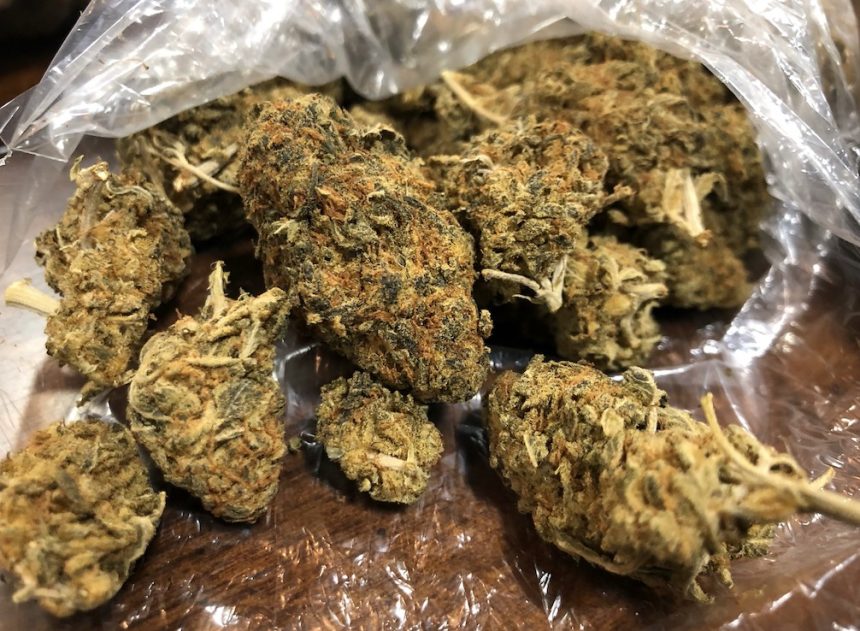After staying silent all day, Governor Tate Reeves finally decided to sign off on the Mississippi Medical Cannabis Act of 2022 on Wednesday.
In an official statement, Reeves said that SB 2095 was not one he would have written, but due to multiple amendments, he chose to sign. If he would have chosen not to sign, the veto-proof bill would have still gone into law.

My statement on the medical marijuana bill: pic.twitter.com/VTpXbfMv6C
— Tate Reeves (@tatereeves) February 2, 2022
Getting medical marijuana to Mississippi has been a lengthy process with Reeves serving as a roadblock along the way.
In November of 2020, 74 percent of Mississippians voted to approve Initiative 65, a grassroots initiative spurring from the Medical Marijuana 2020 (MM2020) campaign.
Five months later, the Mississippi Supreme Court struck down the medical marijuana program adopted by voters after ruling it was improperly placed on the ballot. The state’s highest court ruled in favor of Madison Mayor Mary Hawkins Butler, who claimed MM2020 didn’t receive the appropriate amount of signatures from the state’s five congressional districts as they stood in 2000. However, Mississippi went from five to four congressional districts following the 2000 census, making for a peculiar lawsuit.
Then, the Senate, led by Lt. Governor Delbert Hosemann, passed a bill that would allow medical marijuana to become legal in Mississippi. Speaker Philip Gunn and the House proceeded to let the bill die before lawmakers concluded the 2021 session in April.
In September, Gunn told SuperTalk Mississippi that House and Senate leadership were “in agreement” on a bill and that he was going to get together with Hosemann to “inform the governor we are ready.”
Constant speculation suggested that Reeves was going to call a special session, but it never happened. The first-term governor cited “unreasonable demands” with the basis of his argument surrounding the amount of marijuana a patient is allowed.
Coming into the 2022 session, Reeves double-downed on his issue with the proposed medical dosage unit, asking lawmakers to reduce the maximum amount a patient can receive to 1.875 ounces per month.
Upon commencement of this year’s session, it only took nine days for SB 2095 to pass through the Senate with a vote of 46-5. The House then made three amendments to the piece of legislation before passing it with a 104-14 vote. With 150 votes across both chambers, the bill was destined to become law—executive signature or not.
Here’s a quick rundown of what you need to know about the medical marijuana program set to be implemented in Mississippi:
- The maximum amount of medical marijuana a person can receive each month is 3 ounces, or around 2.8 grams per day.
- Applications will begin to go out within 120 days, while seeds will be planted in July at the earliest, according to Ken Newburger of the Mississippi Medical Marijuana Association.
- 22 medical conditions, including cancer and epilepsy, can be treated with the use of medical marijuana.
- Physicians, certified nurse practitioners, physician’s assistants, and optometrists can certify patients for cannabis use. Patients are required to have an in-person assessment with a follow-up appointment six months later. Qualifications are stricter for those aged 18-25.
- The state sales tax of 7% will be applied to all cannabis sales. There’s also a 5% excise tax for cultivation.
- Strict reporting requirements will be placed on both cannabis businesses and practitioners.
- Cities and counties can opt out.
- Cannabis businesses cannot be within 1,000 feet of a school, church, or daycare.
- The Mississippi State Department of Health is in charge of issuing cards, as well as promulgating rules regarding packaging and advertising. Senator Kevin Blackwell said that State Health Officer Dr. Thomas Dobbs will do a great job overseeing the program, comparing him to “the Energizer bunny.”
Mississippi is now the 37th state to allow the medical use of cannabis.







